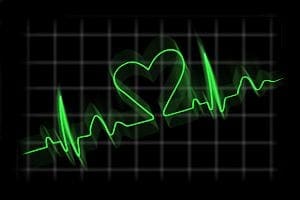statFor some women, it's about making an elegantement at special events or being a couple…

What Is Your “Heart Age”? Why You Should Care and How You Can Find Out
 How old is your heart? Would you be surprised to learn that it might be either “older” or “younger” than you are in biological terms? That is the message being conveyed by a tool called the JBS3 Risk Calculator, developed by Joint British Societies to allow people to quickly and easily assess their heart’s “true age.”
How old is your heart? Would you be surprised to learn that it might be either “older” or “younger” than you are in biological terms? That is the message being conveyed by a tool called the JBS3 Risk Calculator, developed by Joint British Societies to allow people to quickly and easily assess their heart’s “true age.”
The JBS3 Risk Calculator works by calculating your lifestyle habits, cholesterol levels, blood pressure, smoking status, existing medical conditions, family medical history, age, gender, and other factors—all of which could affect your heart health—to give you an assessment of both your risk of contracting cardiovascular diseases (CVDs) and your predicted life expectancy. JBS3 is an extension of the original Framingham Risk Calculator, which has been available for years (see the links at the end of the article).
The JBS3 calculator is being provided to help health care providers communicate the risks of heart disease to people whose immediate risk (that is, over the next 10 years) may be low, but whose lifestyle choices may seriously increase their CVD risk over their lifetime. It was intended to convey the benefits of making healthy lifestyle changes early in life, thus avoiding potential CVDs later in life.
The new calculator was developed by experts from the Joint British Societies, a collection of 11 professional societies involved in the treatment and prevention of cardiovascular disease. They felt that an update to the older Framingham Risk Calculator was needed because CVDs are still the leading cause of death worldwide, and new risk factors such as obesity and diabetes are on the rise. Also, many current prevention strategies are aimed only at those who have a high short-term risk of heart attack or stroke while ignoring the much larger number of people whose current lifestyle choices are putting them at a high lifetime risk of developing CVDs.
JBS3 is used by health care professionals to assess CVD risk in their patients, but it is also freely available online to those who want to assess their own risk levels. The calculator asks you to complete a number of questions and then generates your estimated “Heart Age” (compared with someone of the same age, gender, and ethnicity with optimal risk factors) and your “Healthy Years” (showing how many years you can be expected to survive without experiencing a heart attack or stroke).
We join with the Joint British Societies in recommending that you spend a few minutes completing this assessment to determine your own heart age. The JBS3 Risk Calculator is available freely online at: http://www.jbs3risk.com/ and only takes a few minutes to complete. For those interested in assessing the current state of their heart health, we also list below a few other similar online heart health calculators:
- The Heart Health Profiler calculator from University Health System (based on scoring systems from the Framingham Heart Study):
http://www.universityhealthsystem.com/check-my-heart-age/ - The Heart Age Forecast calculator from the Heart Foundation (based on scoring systems developed by the New Zealand Heart Foundation and the University of Auckland):
http://www.knowyournumbers.co.nz/your-heart-age-forecast.aspx
- The Heart Age calculator from the World Heart Foundation: http://www.heartage.me/




